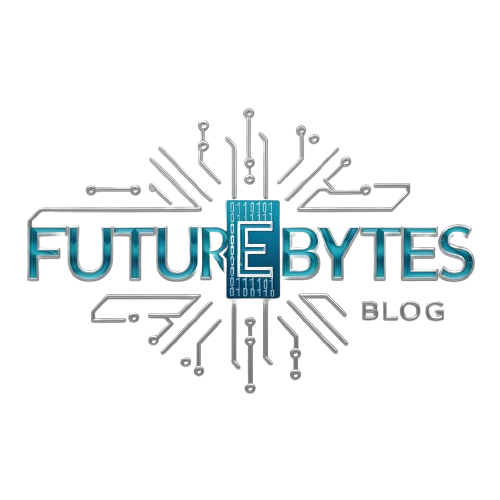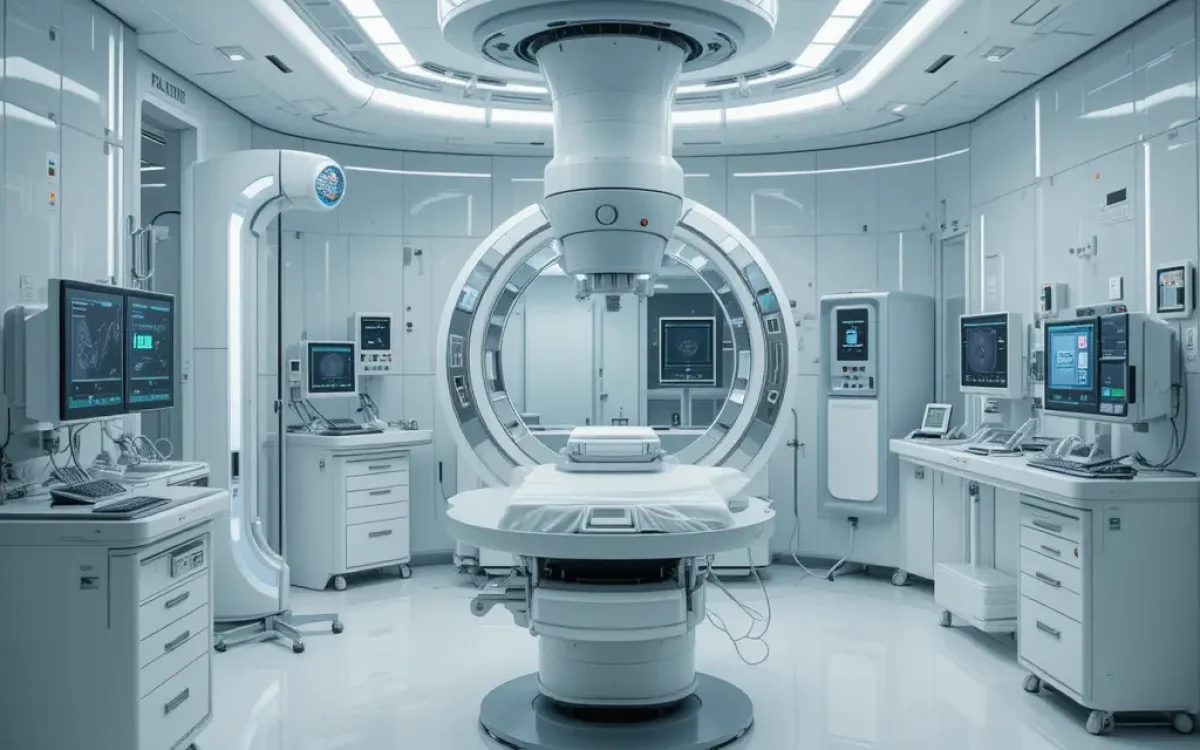Artificial Intelligence is reshaping the landscape of healthcare diagnostics. This technology offers new possibilities for accurate and timely diagnosis. AI systems analyze vast amounts of medical data quickly. They identify patterns that might be missed by human eyes. This transformation promises improved patient outcomes and more efficient healthcare processes. As AI continues to evolve, its role in diagnostics becomes increasingly vital.
The Role of AI in Modern Healthcare
AI in healthcare is like having a super-smart assistant who never sleeps. It helps doctors make better decisions by analyzing tons of data quickly. Imagine a detective who can solve mysteries faster because they have access to every clue instantly. That’s what AI does for healthcare. It transforms diagnostics, making them more accurate and efficient.
Enhancing Diagnostic Accuracy
AI in healthcare is transforming diagnostics by improving accuracy. For instance, AI algorithms can analyze medical images, like X-rays or MRIs, with incredible precision. This means fewer errors and faster results. I remember a case where AI detected a tiny tumor that was initially missed by human eyes. It was a game-changer for the patient, leading to early treatment and a better outcome.
AI also helps in predicting diseases before they become serious. By examining patterns in patient data, AI can forecast potential health issues. This proactive approach is like having a weather forecast for your health, allowing for preventive measures. In my opinion, this is one of the most exciting aspects of AI in healthcare.
Personalized Treatment Plans
Another role of AI is creating personalized treatment plans. By analyzing a patient’s genetic information, AI can suggest the most effective medications. It’s like having a tailor-made suit, but for your health. This personalization leads to better patient satisfaction and outcomes.
AI in healthcare is not just about technology; it’s about improving lives. As a healthcare AI specialist, I see the potential for AI to make healthcare more accessible and effective. It’s an exciting time to be part of this transformation.
Advancements in Diagnostic Technologies
In recent years, the landscape of diagnostic technologies has undergone a remarkable transformation. The integration of AI in Healthcare: Transforming Diagnostics has played a pivotal role in this evolution. As a Healthcare AI Specialist, I have witnessed firsthand how these advancements are reshaping the way we approach patient care.
Revolutionizing Diagnostic Accuracy
AI-driven tools have significantly improved diagnostic accuracy. For instance, AI algorithms can analyze medical images with precision, often surpassing human capabilities. I recall a case where an AI system detected a subtle anomaly in a patient’s lung scan that was initially overlooked by radiologists. This early detection led to timely intervention, ultimately saving the patient’s life. Such experiences highlight the profound impact of AI in Healthcare: Transforming Diagnostics.
Moreover, AI technologies are not just limited to imaging. They are also enhancing diagnostic processes in pathology and genomics. By processing vast amounts of data quickly, AI systems can identify patterns and correlations that might take humans much longer to discern. This efficiency is crucial in providing timely and accurate diagnoses, which can be life-changing for patients.
Challenges and Ethical Considerations
AI in Healthcare: Transforming Diagnostics is a promising field, yet it faces several challenges and ethical considerations. As a healthcare AI specialist, I often encounter both excitement and concern from professionals and patients alike. The potential for AI to revolutionize diagnostics is immense, but we must tread carefully.
Challenges in Implementation
One major challenge is the integration of AI systems into existing healthcare infrastructures. Many hospitals still rely on outdated technology, making it difficult to incorporate advanced AI tools. For instance, I once worked with a clinic that struggled to update its systems to accommodate new AI diagnostic software. This transition required significant investment and training, which not all institutions can afford.
Ethical Considerations
Ethical concerns are equally pressing. The use of AI in healthcare raises questions about data privacy and patient consent. Imagine a scenario where AI analyzes patient data without explicit permission. This could lead to breaches of trust and legal issues. Moreover, there’s the risk of AI making decisions that lack human empathy. While AI can process vast amounts of data quickly, it cannot replace the nuanced understanding a human doctor provides.
In my opinion, balancing innovation with ethical responsibility is crucial. We must ensure that AI in Healthcare: Transforming Diagnostics respects patient rights and enhances, rather than replaces, human expertise. By addressing these challenges and ethical considerations, we can harness AI’s full potential to improve healthcare outcomes.
Future Prospects of AI in Diagnostics
The future of AI in healthcare is promising, especially in the realm of diagnostics. As technology advances, AI systems are becoming more adept at identifying patterns and anomalies in medical data. This capability is transforming diagnostics, leading to better patient outcomes and more efficient healthcare processes.
AI’s Role in Early Detection
AI’s ability to analyze vast amounts of data quickly is revolutionizing early disease detection. For instance, AI algorithms can now detect early signs of diseases like cancer from imaging scans with remarkable accuracy. This early detection is crucial, as it often leads to more effective treatment options and improved survival rates. In my experience as a healthcare AI specialist, I’ve seen firsthand how AI tools have helped radiologists identify subtle changes in mammograms that might have been missed by the human eye.
Moreover, AI in healthcare is not just about speed and accuracy. It’s about providing a second set of eyes, a digital assistant that tirelessly sifts through data to find what might be overlooked. I recall a case where an AI system flagged a potential issue in a patient’s scan that led to further investigation and ultimately, a life-saving intervention. These stories are becoming more common as AI continues to integrate into healthcare systems.
Challenges and Opportunities
Despite the promising prospects, there are challenges to overcome. Data privacy and the need for large datasets to train AI models are significant concerns. However, the opportunities far outweigh these challenges. AI in healthcare is transforming diagnostics by providing tools that enhance human capabilities, not replace them. As we move forward, the collaboration between AI and healthcare professionals will be key to unlocking the full potential of these technologies.
In conclusion, the future of AI in healthcare diagnostics is bright. With continued advancements, AI will play an increasingly vital role in improving patient care and outcomes. As someone deeply involved in this field, I am excited to see how AI will continue to evolve and transform the landscape of healthcare diagnostics.
Conclusion
As we reach the conclusion of our exploration into AI in Healthcare: Transforming Diagnostics, it’s clear that technology is reshaping the medical landscape. The integration of AI in diagnostics is not just a futuristic concept; it’s happening now, and it’s making a significant impact.
Reflections on AI’s Impact
AI’s ability to analyze vast amounts of data quickly is akin to having a supercharged assistant. Imagine a doctor with a library of medical knowledge at their fingertips, able to cross-reference symptoms and histories in seconds. This is the reality AI brings to healthcare. I recall a case where AI helped identify a rare condition that had puzzled doctors for months. The relief on the patient’s face was unforgettable. Such moments highlight the potential of AI to improve outcomes.
However, it’s not just about speed. AI also enhances accuracy. By reducing human error, AI ensures that diagnoses are more reliable. This is crucial in fields like oncology, where early detection can save lives. Yet, as a healthcare AI specialist, I believe that the human touch remains irreplaceable. AI should complement, not replace, the empathy and intuition of healthcare professionals.
In conclusion, AI in Healthcare: Transforming Diagnostics is a journey of collaboration between technology and humanity. As we continue to innovate, we must remember that the ultimate goal is better patient care. The future of healthcare is bright, and AI is a key player in this transformation.






